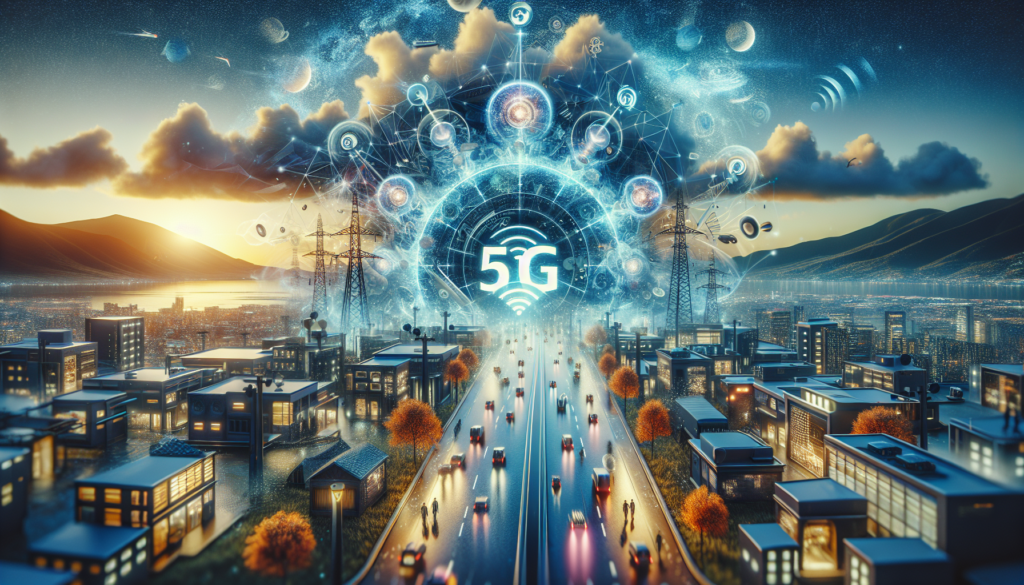In the last decade, technological progress has reconfigured multiple sectors, and mobile marketing has been no exception. With the advent of 5G technology, we find ourselves at the cusp of a new revolution that promises to radically transform how brands communicate with their consumers. This shift is marked by an increase in capacity, speed, and efficiency of mobile data networks, features that define the fifth generation of mobile telephony technologies.
Exponential Speeds and Reduced Latency
One of the hallmarks of 5G is its ability to offer significantly higher download and upload speeds than those available on 4G networks. It is estimated that 5G speeds could reach peaks of up to 20 Gbps, corresponding to a quantitative leap in data transfer capacity. Moreover, latency—the network response time—is reduced to milliseconds, allowing for near-instantaneous interaction that is critical for real-time applications.
Real-Time Applications and Immediacy
This increase in speed and the decrease in latency have direct implications on mobile marketing. For example, real-time advertising formats can benefit, allowing for more refined personalization and the ability to adjust promotional messages based on the user’s instantaneous context. In addition, this paves the way for more fluid and natural interactions with virtual assistants and chatbots.
Enhanced Connectivity and IoT Expansion
With 5G technology, there is an expected proliferation of the Internet of Things (IoT), as it can support a much higher density of connected devices in specific areas, without sacrificing performance.
Contextual Marketing and Geolocation
The ubiquitous and consistent connectivity of 5G enables much more refined contextual marketing, where campaigns can be designed to interact with the user, not only through their smartphone but also through an ecosystem of IoT devices. Precise geolocation and the ability to handle large volumes of data in real-time empower brands to send offers or relevant information just when the consumer is in the physical proximity of a product or service.
Changes in Content Strategy
The ability to transmit large amounts of data quickly with 5G means that multimedia-rich content, such as high-definition videos and augmented reality (AR) experiences, become more accessible and seamless, transforming the narrative and delivery of marketing content.
Augmented Reality and Immersive Experiences
AR content, which has been limited by network and device capabilities, can flourish with the advent of 5G. Marketing campaigns could integrate interactive and highly personalized experiences that allow users not only to see products in their environment through their camera but also to interact with them. This level of immersion can significantly improve engagement rates.
Advanced Data Analytics
Another effusion of 5G in mobile marketing is the ability to handle and analyze large sets of data in real-time. This enhances segmentation and targeting capabilities by allowing companies to understand and act upon behavior patterns more quickly and accurately.
Personalization and Dynamic Segmentation
With the capacity to process and analyze data at high speed, personalization strategies become more dynamic and adaptive. Mobile marketing can thus offer highly personalized experiences, crossing the frontier of perpetual ‘segment marketing’ to venture into individualized marketing based on real-time data analysis.
Privacy and Security Challenges
With the implementation of 5G, concerns over privacy and data security become even more critical. The transfer of massive quantities of personal data and dependence on constant connectivity require robust security protocols and stricter regulations.
Responsibility and Regulatory Compliance
Brands must be prepared to handle the responsibility that comes with managing large volumes of user information, ensuring the protection of their data. Compliance with regulations such as the GDPR is essential in this new technological scenario.
Final Considerations: Prospects for the Future
Looking toward the future, 5G promises a continued evolution of mobile marketing. Professionals in the field must be willing to adapt to new technologies, leveraging the capabilities of 5G to create more effective, personalized, and real-time marketing campaigns. At the same time, they must remain vigilant in terms of privacy and security practices, always prioritizing consumer trust and satisfaction.
Case Study: 5G Deployment and Mobile Marketing in Retail
A tangible example of how 5G is redefining mobile marketing can be seen in the retail sector. Department stores are exploring how to use AR to allow customers to ‘try on’ clothes virtually from their smartphones. With the 5G infrastructure, these experiences are not only possible but are surprisingly real, increasing the chances of conversion and fostering a revolutionary user experience. Additionally, real-time data analysis enables stores to adjust promotions and stock according to consumers’ instantaneous behavior, creating an ultra-responsive shopping environment.

